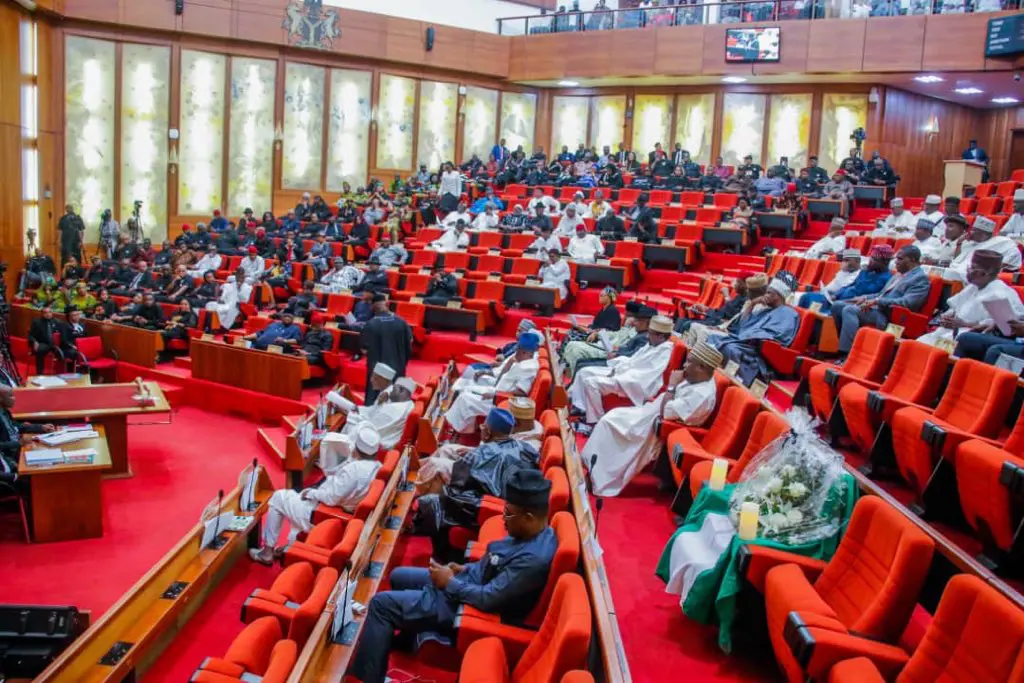The Senate has constituted a 12-member ad hoc committee to provide guidance on responding to rising international concerns about alleged state-backed persecution of Christians in Nigeria. The decision was made during a closed-door session on Tuesday, where lawmakers discussed recent claims by the United States Government pointing to possible acts of genocide against Christians in some regions of the country.
This move comes amid growing diplomatic attention and the potential consequences such allegations could have on Nigeria’s international standing and interfaith relations.
The committee comprises Senators Victor Umeh (Anambra Central), Yemi Adaramodu (Ekiti South), Aniekan Bassey (Akwa Ibom North East), Niyi Adegbonmire (Ondo Central), Abdul Ningi (Bauchi Central), Titus Zam (Benue North East), Tony Nwoye (Anambra North), Tahir Monguno (Borno North), and Asuquo Ekpenyong (Cross River South).
Its mandate is to prepare a detailed position paper for presentation to both the Executive and the Senate. The document is expected to outline Nigeria’s legislative stance on the issue and provide guidance for the country’s engagement in ongoing international discussions.
Senate President Godswill Akpabio, who announced the committee, emphasised that the position paper must rely on verifiable facts and statistics.
Previously, the Senate had resolved to engage with the United States Congress to address what it described as misleading narratives portraying Nigeria’s security challenges as a Christian genocide. This followed a motion by Senator Ali Ndume (Borno South) last week, which triggered a broader debate among lawmakers about how Nigeria’s internal security situation is perceived internationally.
During the discussion, senators voiced concerns that while such narratives may arise from genuine concern, they often misinform international partners and could damage Nigeria’s global image and economy.
To address this, Akpabio proposed forming an ad hoc committee to travel to the United States and meet directly with American lawmakers to clarify the situation. He recommended private discussions, suggesting a closed-door session and a smaller delegation for the engagement.
“There are misconceptions that need to be corrected. We are dealing with a complex terrorist threat and it’s important that our counterparts in the US understand that the violence affects both Christians and Muslims,” Akpabio added.

